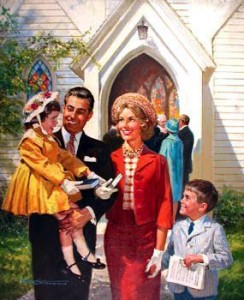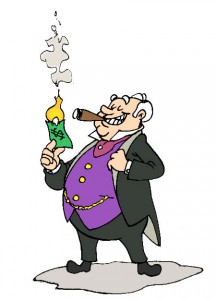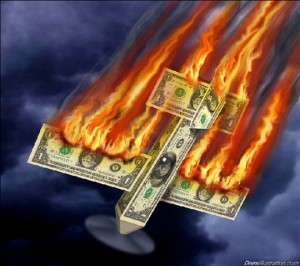Like many Gen Xers, I’m pretty tired of hearing how great the Baby Boomers were. Yes, they had amazing music, and that whole civil rights crusade is tough to top.
But as they age, Baby Boomers have made it clear that their bell-bottomed, peace-and-love, tune-in-turn-on idealism was a convenience of their youth, or it was the result of a loud minority that never reflected how most of them really felt.
I say this because recent surveys have shown a generation gap (really a chasm) between older and younger Americans on just about every social issue.
Perhaps this isn’t a big surprise, as people tend to get more conservative as they get older. But even with that caveat, some of the attitudes that Baby Boomers (especially white seniors) hold are alarming to Gen X and Millennials.
For example, more than half of white seniors “view the rise of newcomers from other countries as a threat to traditional American values and customs.” Let’s just say that most young people (many of whom have immigrant parents) don’t see things the same way.
And as anyone who has seen footage of a Trump rally can tell you, “much of the older white population — especially less-educated white males whose anger is being courted — appears threatened by the nation’s demographic change.”
Indeed, 60 percent of the white working class believe “that discrimination against whites has become as big a problem today as discrimination against blacks and other minorities.”
In addition to being whiny, narrow-minded, and xenophobic, this attitude is — how should I put this? — fucking suicidal.
You see, the “demographic reality is that America’s youth — and more specifically its racial minority youth — is its future.” That’s because Millennials are the most ethnically diverse generation in American history, and their future kids will be even more mixed. So there’s no going back to a 1950s mythological USA where everybody was white and things were gosh darn swell.
It also means that “because of the growth of Hispanics, Asians, blacks and other races, the United States will be able to replenish its younger population.”
Going forward, this implies that “America will not suffer a European-style demographic crisis as Baby Boomers retire. Young Latinos are stepping into the workplace and paying the taxes that will keep the nation’s fiscal house in order.”
Keep in mind that when it comes to Hispanics, we “are much younger than Americans as a whole, and young Latinos in America are better educated and earn more than ever.”
The bottom line is that “to ignore or wish away the nation’s youth-driven minority growth is short-sighted as a national economic development plan.”
Very soon, old Baby Boomers are going to be dependent on young Latinos to fund Social Security. But try explaining this fact, and you’re likely to be drowned out by a sixty-something cranking up Joni Mitchell’s Woodstock.
Yeah, I guess those were the good old days.













